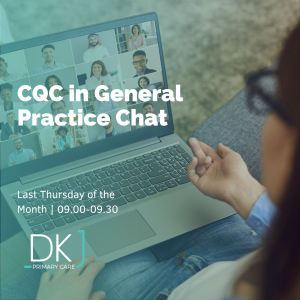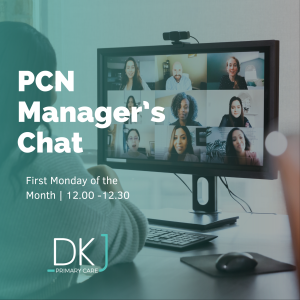November 2024 Newsletter

Good morning
As we move into November, we’re embracing the change of seasons and the fresh opportunities ahead for the month. We have plenty going on, make sure to check out our masterclasses later in the newsletter, along with a new addition to our various classes/chats we run:
Working with Enablement HR, we will be conducting 30-minute HR Healthchecks over Teams, the three key areas of focus will be:
- Compliance with employment law – Reviewing whether contracts, policies, and procedures align with current regulations.
- Employee engagement – Discussing how well their practice supports and engages its employees.
- Performance management – Evaluating their processes for employee development, feedback, and appraisals.
Please contact us at info@dkjsupportservices.co.uk if you are interested or would like any further information on these HR Health checks.
We are also running our free PCN Manager’s chat on the first Monday of the month, and our CQC in General Practice chat on the last Thursday of the month. You can book on to these via the Events Page on our website.
As always at DKJ, if you have any questions or want to chat about anything, please get in touch with us any time!
🔦 November Masterclass Spotlight 🔦
Are you ready for the CQC Single Assessment Framework?
Thursday 14 November 13:00 – 14:30
Join our Masterclass where we will cover:
- Overview of the SAF.
- The 34 Quality Statements.
- The I Statements.
- The We Statements.
- The 6 Evidence Categories – focusing on feedback from staff, patients and partners which makes up half of how CQC will inspect practices.
- Focus on Equity in Access (this is what CQC are looking at currently).
- Focus on Learning Environment (possibly the next area of focus).
Toolbox Tips and How to Answer the CQC Inspectors looking at significant events, safeguarding, patient population, reasonable adjustments, accessible information standard, equality, diversity and inclusion, patient engagement and feedback, complaints and leadership.
Do you know what Core20Plus5 is and how this is being implemented within General Practice?
Wednesday 27 November 11:00 – 12:30
At our Understanding Health Inequalities Masterclass, we will be discussing:
- What Health Inequalities is.
- Focusing on inclusion health, areas of patient deprivation, the 5 clinical priority areas for NHSE.
- Understanding how health inequalities works in General Practice.
- Looking at the Population Health Management Approach.
The Masterclass will look at case studies from across the country and help your PCN and/or practice lead the reducing health inequalities agenda.
Understanding Changes in CQC Inspections
Keeping up with the Care Quality Commission (CQC) changes is crucial for everyone in the healthcare sector—whether you run a private clinic, are a practising doctor, or are setting up services in the UK. The CQC has updated its inspection approach to be more flexible and responsive, which can impact your compliance and readiness.
KEY CHANGES IN CQC INSPECTION FREQUENCY
- Continuous Evidence Gathering The CQC will now gather evidence continuously, rather than relying solely on scheduled inspections. This means they will monitor services through various channels – like data from national surveys and patient feedback – allowing for a more accurate and timely assessment of care quality. Inspections are still important, but they are now just one part of the bigger picture.
- Triggered Assessments Inspections are no longer solely based on past ratings. The CQC will assess services when new evidence arises, such as complaints or performance drops, making their approach more proactive and responsive to issues.
- Planned vs. Responsive Inspections The CQC distinguishes between planned inspections (routine checks) and responsive inspections (triggered by concerns). This allows them to adapt to situations as they develop, ensuring that issues are addressed promptly.
- No Fixed Inspection Interval The timing of inspections will now depend on the evidence gathered and the risk level of each service, rather than a fixed schedule. This shift allows the CQC to focus more on higher-risk services and adjust assessments based on ongoing monitoring.
- Variable Timing for Different Service Types The CQC’s new framework varies inspection frequency depending on service type and associated risks. Higher-risk services may be inspected more frequently, while lower-risk ones could have longer intervals between assessments. Feedback from providers will inform adjustments to this schedule.
CONCLUSION
The CQC’s new approach signifies a move towards a more flexible, risk-based inspection system. This means providers can no longer rely on predictable inspection schedules and must maintain high standards at all times. For assistance in navigating these changes, DKJ Support Services is here to help you meet CQC requirements efficiently. By understanding and adapting to these new processes, you can ensure compliance and contribute to improving care quality across the UK.
Contact us at cqc@dkjsupportservices.co.uk for anything you may need help with.

